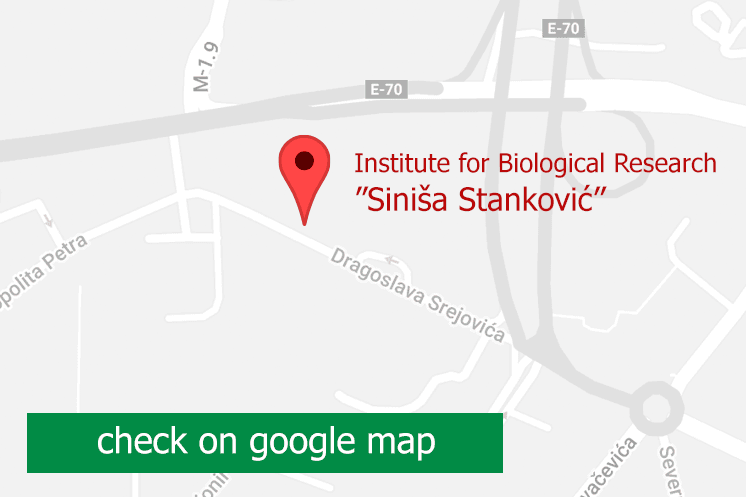Dr. Stanislava Stanojević
Principal Research Fellow
Dr. Stanislava Stanojević
Education:
2002 PhD thesis in Immunochemistry: “The influence of stress on humoral immune response in the rat”, Faculty of Pharmacy, University of Belgrade
2000 MSc Thesis in Neurosciences: “The effect of opioid peptides on different macrophage functions in the rat“, Center for Multidisciplinary Studies, University of Belgrade
1994 BSc Degree: Faculty of Pharmacy, University of Belgrade
Professional experience:
2024 - Principal Research Fellow, IBISS
2023 - 2024 Assistant Director for Education, Science and Research, Institute Torlak
2017 - 2023 President of the Scientific Council of Institute "Torlak“
2015 - 2016 Head, Basic Research Department, Institute "Torlak",
2013 Principal Research Fellow, Institute "Torlak",
2008 Senior Research Associate, Institute "Torlak",
2003 Research Associate, Institute "Torlak",
2000 Research Assistant, Institute "Torlak",
1995: Research Trainee, Immunology Research Centre „Branislav Janković“
(after merging with Institute "Torlak" 1998- Basic Research Department)
1994: Volunteer, Immunology Research Centre „Branislav Janković“
Participation in scientific projects supported by national Ministry of Science:
• 2011-2019: Immune system plasticity during aging: immunomodulatory potential of estrogens No 175050
• 2006-2010: Neuroendocrine modulation of immune response: the role of sympatho-adrenomedullar system No 145049
• 2001-2005: The role of hormones, neuropeptides and catecholamines in the modulation of lymphocyte differentiation and function of mature immune cells No 1239,
• 1996-2000 Psychoneuroimmunology, as part of national macro-project Immunology research in Medicine, No 13M14
Miscellaneous:
- Immunological Society of Serbia (ISoS) – member (from 1995), and member of ISoS Executive Committee (2022-2024)
- The Association of Institutes of Serbia – representative of Institute Torlak (2018 -2024)
Scientific interest:
• In period 1994-2000, the most prominent interest was in investigating the effects of stress, neuropeptides and opioid peptides on humoral and cell-mediated immune response, with emphasis on their effects on peritoneal cavity macrophages. This was continued by the investigation of the role of animal sex and strain in immune system changes during aging. More recent research interests comprise the role of gut microbiota in development, modulation, and cessation of inflammatory responses during peritonitis, chemically-induced colitis and in other inflammatory conditions.











